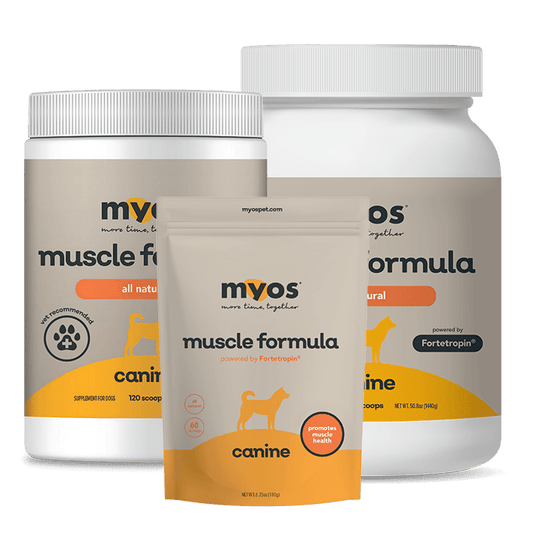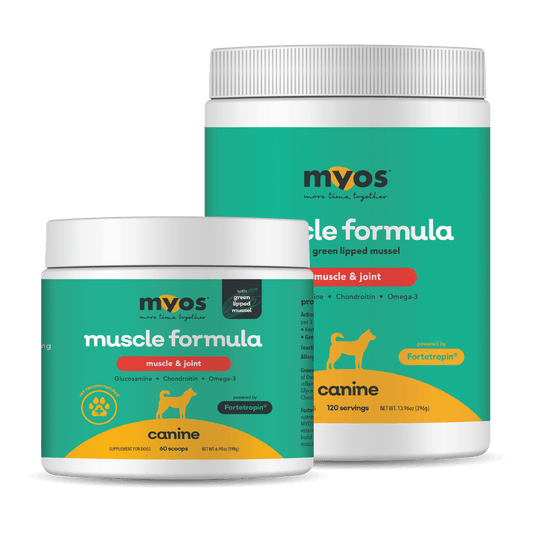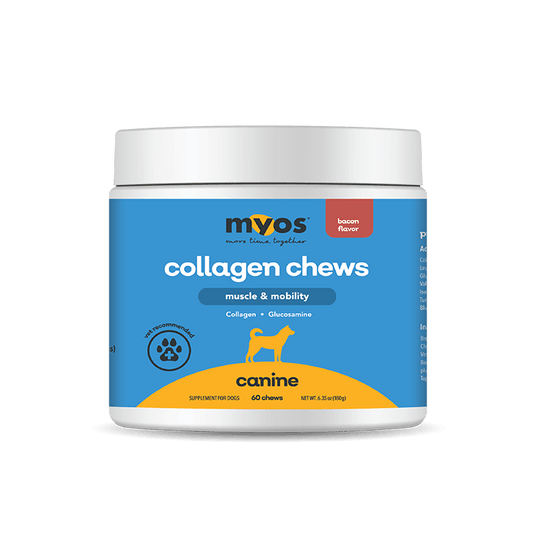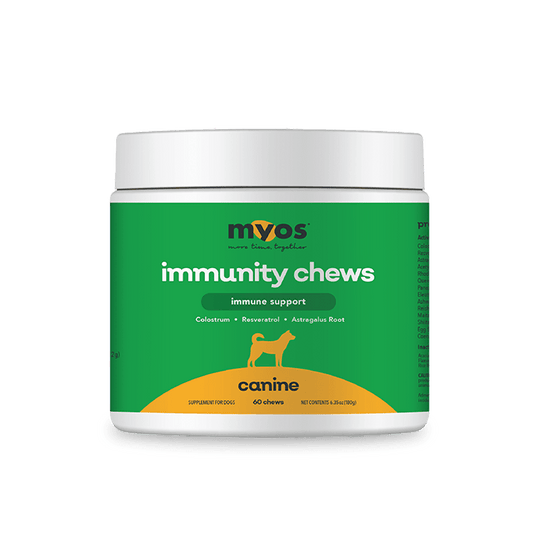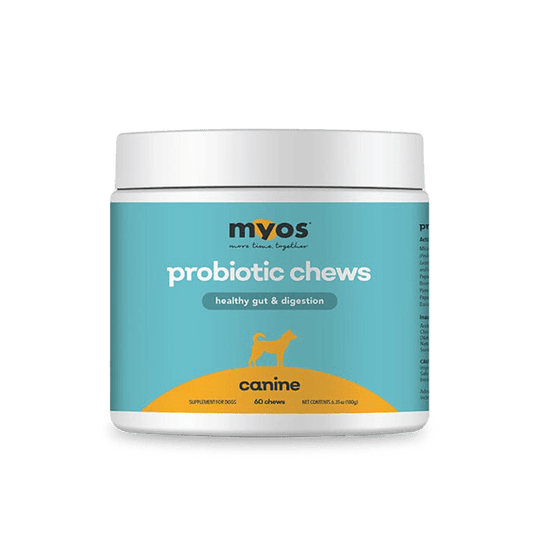
From the time your dog is a puppy, an active routine and proper nutrition are among the most common ways to maintain muscle mass and strength, and prevent muscular atrophy as they age. Being proactive with their muscle health needs can help them live longer, healthier, happier lives for #moretimetogether!
Here are 5 helpful tips to be proactive with your dog's muscle health to ensure them the best quality of life!
1. Regular exercise: Dogs need daily activity for both their physical and mental health, and that exercise doesn’t require high-endurance jogs or 10-mile hikes. It can be something as simple as a 15-to-20-minute walk per day or a game of fetch to build strength and flexibility. It’s also been proven that a well-exercised dog is a better-behaved dog.
2. Routine check-ups: Since dogs are unable to verbally communicate with us, we need to pay attention to and acknowledge any changes in their behavior, routine, or gait. Even when your dog isn’t showing signs of pain or discomfort, routine visits to the veterinarian will ensure you are one step ahead of any potential health hazards. The minimum recommended amount of vet visits for a healthy dog is every six months.
3. Healthy diet: Buy safe, health-promoting dog food, prepare homemade dog food meals for your pet yourself, or use a combination of both. Pure proteins, such as beef, chicken, and fish, are great for building muscle in dogs. Healthy fats for dogs, such as coconut oil and fish oil, are a good addition to a dog’s diet as well, with the bonus that they promote hydrated skin and a healthy coat. Dark, leafy greens are another wonderful resource as a dog's body crave vitamins as much as it craves protein and fat from meat.
While most carbohydrates should be avoided, there are certain vegetables and fruits that have been scientifically proven to be good carbs for dogs and may help with muscle loss in dogs. Sweet potatoes and pumpkin puree are two examples of safe, nutritional carbs and fiber.
4. Use a Slow Feeding Bowl: Slow feeder bowls come in a variety of sizes, are an excellent tool to help your dog consume food in a healthy way and can also assist in dealing with muscle deterioration in dogs.
5. Essential Vitamins, Nutrients and Supplements: Omega-3 fatty acids and a range of antioxidants can be effective in keeping your dog’s muscles strong. While EPA/DHA essential fatty acids are saturated in fish, they also come in dog-friendly pills or fish oil bottles.
It's best to feed them antioxidants through food, either your dog's kibble or natural veggies and fruits. For example, blueberries and raspberries are full of antioxidants and are safe, healthy and delicious for dogs.
In addition to exercise and proper nutrition practices, your veterinarian may also suggest MYOS Canine Muscle Formula®, an all-natural supplement, designed to support optimal muscle health and strength in dogs.

